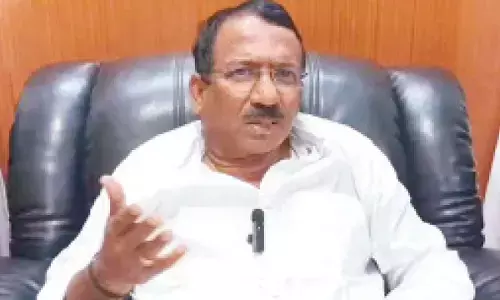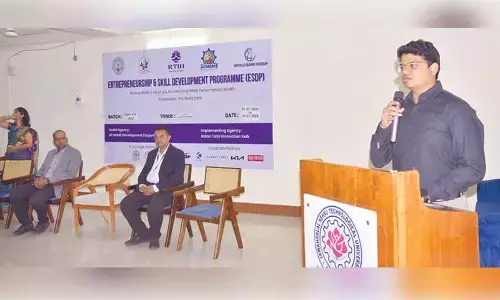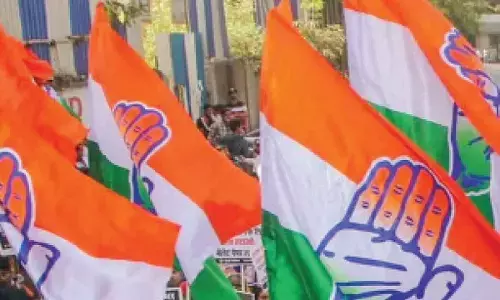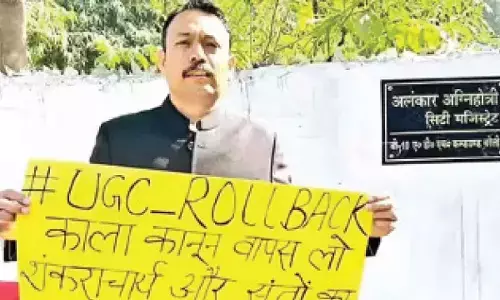Winds of change blowing across education sector
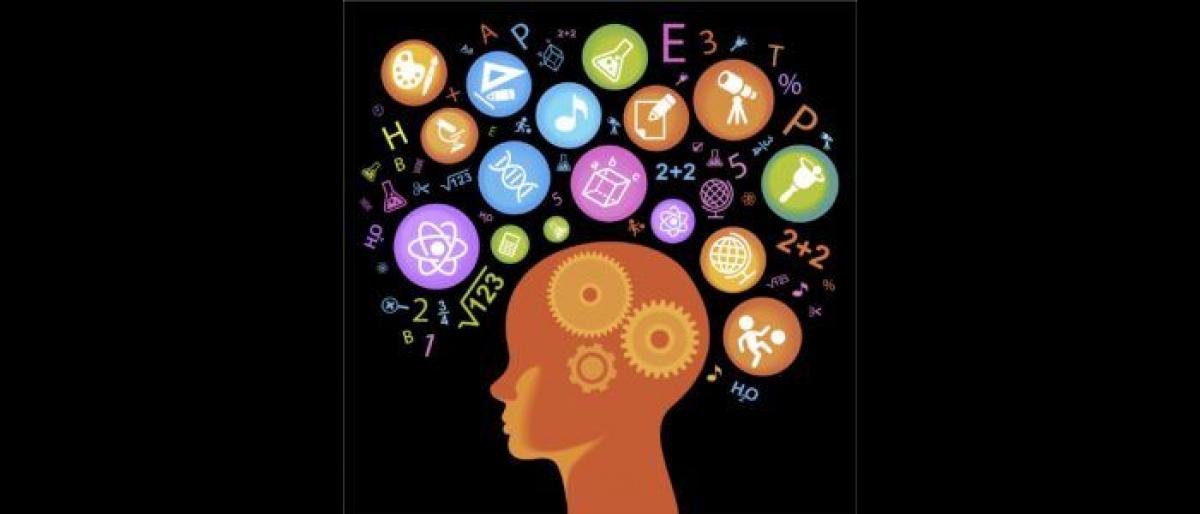
Indian education system is all set to change drastically in the coming few years thanks to the reforms being initiated by the Ministry of Human Resource Development It is essential that education system gets reformed as time progresses otherwise, we will be nowhere compared to advanced nations
Indian education system is all set to change drastically in the coming few years thanks to the reforms being initiated by the Ministry of Human Resource Development. It is essential that education system gets reformed as time progresses otherwise, we will be nowhere compared to advanced nations.
Rapid developments in science and technology and the growing globalisation that knits India with rest of the world demands that our students are prepared for the challenges to make them meet the demands of the changing society. There are two aspects to education itself. One is intensely learning the basics and the second is applying the knowledge. However, it is not just how to learn.
Our school education system was saddled with too much of syllabus forcing students to learn by rote. This mugging up of contents had been taken to extreme extent with the coming up of the techno colleges and institutes which keep hyping their 'successes' shamelessly keeping aside the vast numbers who fumble and tumble in comparison. The dread of parental pressure and the demanding curriculum of the system had been leading to serious psychological problems for the young generation.
There is always an emphasis on how to cover the syllabus. On the contrary it should be on how un-cover the same. The amount of mathematics we teach our grade 12 students is far more than what is taught in countries like the US, Germany and Canada. When a student lands in the first of engineering course, he or she will be taught all basic concepts and so where is the need to teach the same in Class XI? The syllabus of engineering entrance examinations could also be modified on the line of changes brought in the school syllabus. This would take away a lot of stress from the students. HRD Minister, Prakash Javadekar hit the nail on the head when he said the syllabus of school students is more than that of B.A. and B.Com courses.
What Indian students lack is an edge in research at international level because our education system conditions their minds only for learning and then writing the same. They are never allowed to explore with their minds any new ideas or even experiment with the content of syllabus even a bit as it comes in the way of rote learning. The end result is that we produce just robots which work to set patterns.
It is at this juncture that the HRD Ministry began experimenting with changes that will yield good results over time. Several new dimensions are being introduced to the subjects taught in schools to enable the student contribute their best to the society. One of the measures is to halve the NCERT syllabus of higher classes to enable students to pursue other activities. Coming to the Higher Education, the UGC (University Grants Commission) has accorded greater autonomy to higher education institutes including five central and 21 state universities that have maintained high standards. Of these are Jawaharlal Nehru University, Aligarh Muslim University and Banaras Hindu University, 21 State and 24 deemed Universities and two private universities.
All these institutions can experiment with new programmes, departments, centres, off-campus experiments without any approval from the UGC. Union Minister Prakash Javadekar recently said that ratings over 3.6 from National Accreditation and Assessment Council (NAAC) will be granted autonomy in line with Prime Minister Narendra Modi's vision towards a more liberalised regime. These teaching centres could hire foreign faculty too and pay more than Seventh Pay Commission recommendations to attract the best of brains and forge world-wide collaborations too.
An attempt is being made to introduce relevant and timely changes otherwise too in teaching. Several of the topics being taught to science stream students have become irrelevant and introduction of visuals, practical knowledge and interesting facts are the order of the day in modern world.
In addition to all these, the Cabinet Committee on Economic Affairs recently approved the proposal for expanding the scope of Higher Education Financing Agency (HEFA) by enhancing its capital base to Rs 10,000 crore and tasking it to mobilize Rs 1,00,000 crore for Revitalising Infrastructure and Systems in Education (RISE) by 2022.
In order to expand this facility to all institutions, especially to the institutions set up after 2014, Central Universities which have very little internal resources, and the school education/health education infrastructure like AllMS, Kendriya Vidyalayas, the CCEA has approved five windows for financing under HEFA and the modalities of repaying the Principal portion of the fund (interest continues to be serviced through Government grants in all these cases). These could raise money through bonds now. So far funding proposals worth Rs 2,016 crore have been approved by HEFA. As they say, better late than never!












